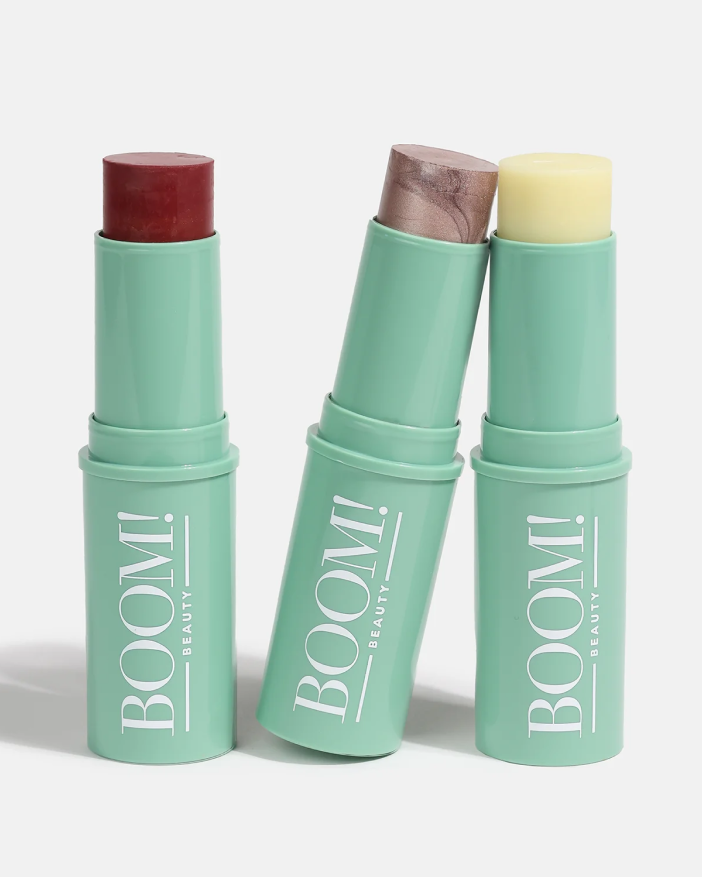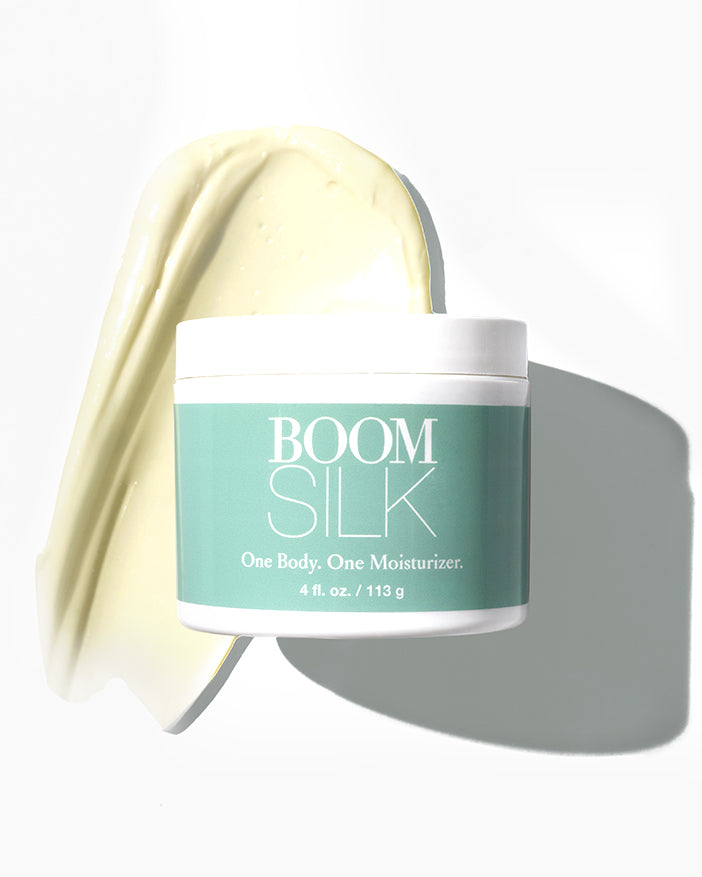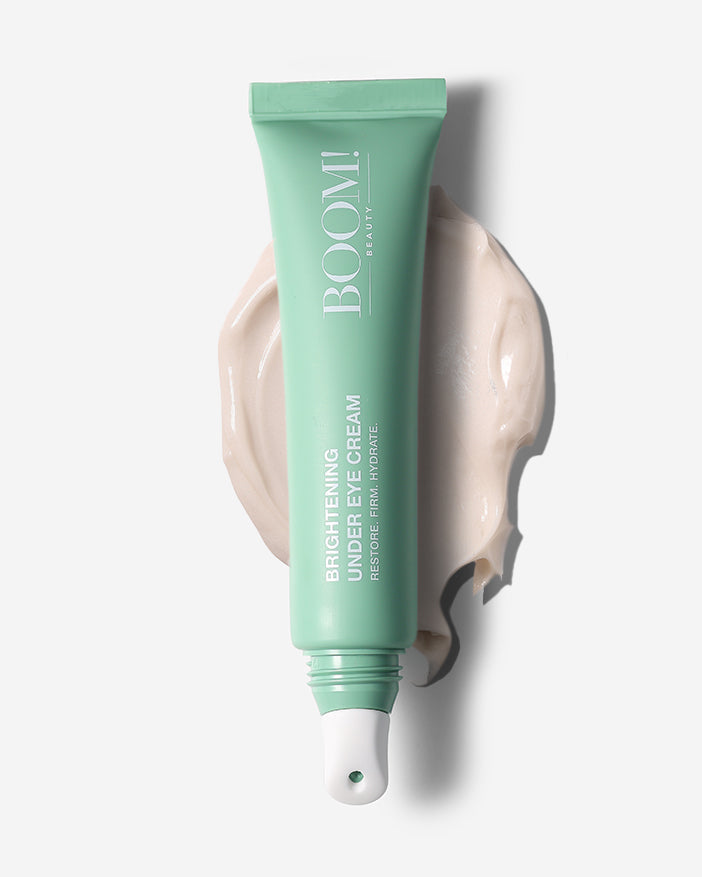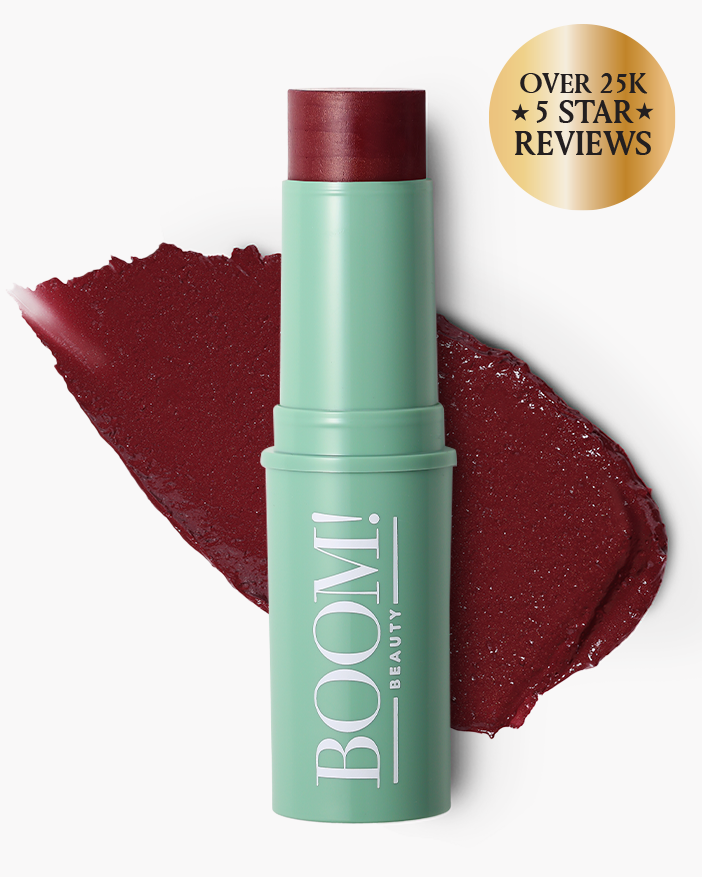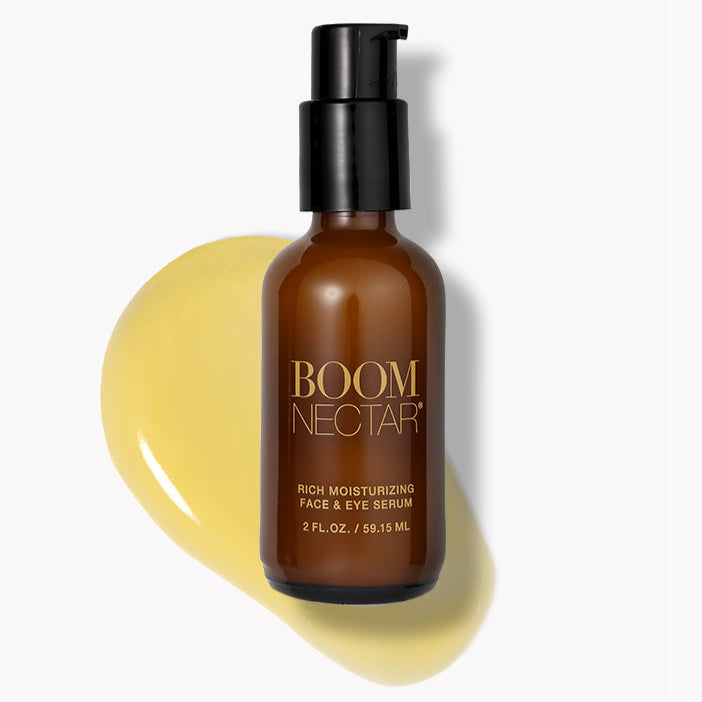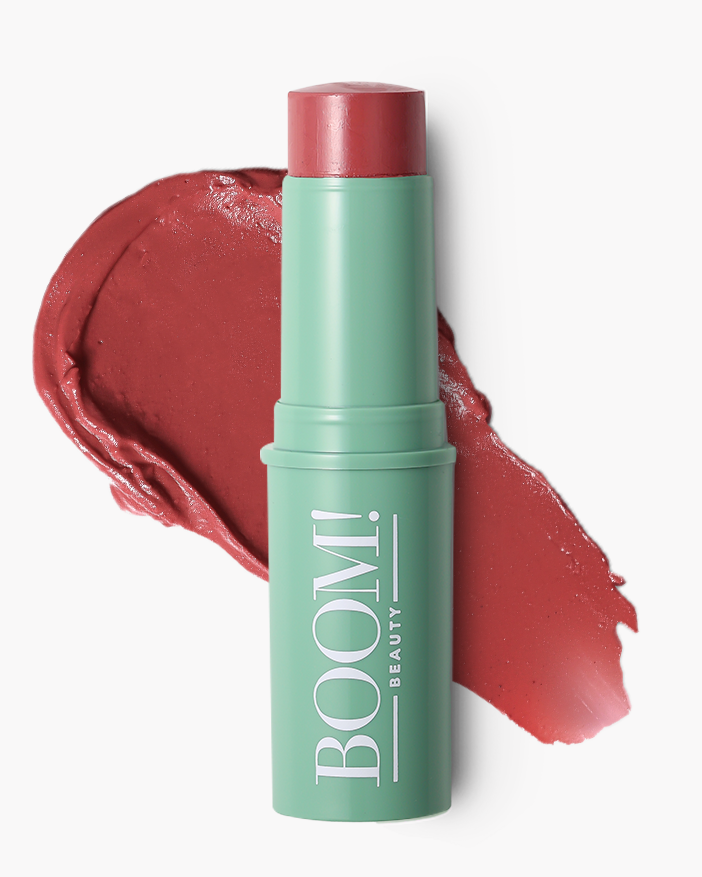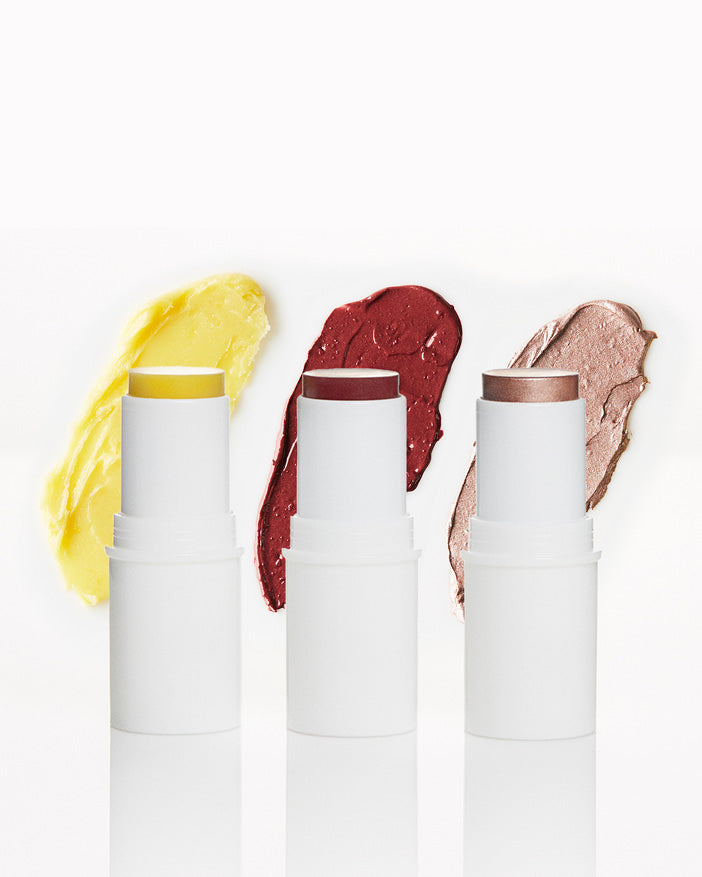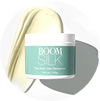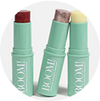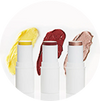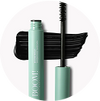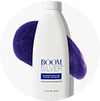Boom Cares: Why We Love These Eco-friendly Vendors
Boom Cares: Why
We Love These
Eco-friendly Vendors
We often think about the concept of sustainability as three pillars: environmental sustainability, social sustainability and economic sustainability.
When considering any process, or the consequences associated with a process, each pillar can be used as a lens to assess the overall benefits (or lack thereof).
When we create a product for our Boom line, we do just that: We ask ourselves a series of questions, considering each pillar, to assess its environmental, social and economic impact.
For instance: Are the ingredients beneficial? Where are the ingredients sourced from? Who makes our packaging? What are the growing practices associated with the ingredient or package material? Does this product benefit society in any way?
We believe that our intentional vendor selections have a ripple effect that impacts social and global sustainability.
Today, we're excited to introduce you to three of the vendors we have chosen to work with. We’ll showcase how each of their sustainability efforts and considerations contributes to a better future, whether locally or on a global scale.
1. Paramark
After its introduction in 2019, Boom Gold™ quickly became a customer favorite. The ingredients that make up this luxurious facial oil are ultra-hydrating while also offering a radiant glow upon application.
The luxurious nature of individual ingredients, combined with the fact that a little bit of the formula goes quite far, meant that we wanted to launch Boom Gold in a smaller bottle.
Due to the tiny neck of the bottle, we had to search for a glass-bulb pipette that would fit physically as well as aesthetically.
The search was far and wide. From coast to coast, we learned how rare a dropper in this size was.
That is until we discovered Paramark: A specialty dropper producer located in Baltimore, Maryland.
For those that didn’t know, there exist people passionate about dropper pipettes. Probably the most passionate we’ve ever come across is the co-founder of the company, Jorg.
A small, family-owned manufacturer and distributor, Paramark is run by Jorg, his wife Trina and their daughter Mia.
If you speak to Jorg, it is evident how much his family appreciates their community. For them, supporting others in the local economy is of utmost importance.
To help stimulate the local economy of Baltimore, Maryland, they employ 25 people within the city. Unlike many competitors, they choose to source all of the material resins they use to create the caps and bulbs within the USA.
The only exception is specialty glass tubing, which originates from a company in Germany that’s committed to the environment.
All materials that Paramark uses are recyclable. They are cognizant of their waste stream, which is minimized by reusing, recycling and reducing waste.
Also, they are proud that their entire process doesn't use water and their chemical waste is minimal.
For instance, they use and reuse acetone, necessary to test printed glass, instead of discarding it each time they perform a test.
Paramark relies on the end consumer to properly dispose of their dropper pipettes and is thrilled to support our initiatives by donating used and clean ones to wildlife refuges who accept them.
2. Gallant International
Research shows that conventionally grown cotton uses more insecticides than any other crop in the world. Each year, cotton producers reportedly use as much as 25% of the world’s insecticides and more than 10% of its pesticides.
These harmful chemicals can be deadly and have reportedly poisoned farmers all over the world. Factory workers also breathe in toxic fumes during the manufacturing process.
Furthermore, these harmful chemicals soak into runoff water after heavy rains, ultimately poisoning the ocean, lakes, rivers and waterways.
With a core underlying mission to improve the lives of farmers and factory workers on a global scale, as well as create a more resilient farming system that supports the environment, Gallant International was founded by Los Angeles-based Vikrant and Vizan Giri in 2009.
Vikrant wanted to start a business that not only supported the artists from his native Nepal but could also help influence farming, specifically cotton farming, to adopt regenerative practices. Implementing regenerative farming practices promotes biodiversity, conserves fresh water, protects soil health and ensures animal welfare.
The impact directly benefits farmers working the land as well because it gives them more access to food security and less exposure to crop failure or pesticides.
Gallant has been wildly successful, and we are proud to support their initiatives by creating our organic and fair trade Boom Bags with them.
Gallant International also guarantees fair wages for all its employees and provides access to safe working conditions, healthcare, and many other tools their workers need to thrive in their everyday lives.
Furthermore, the factory in India, where our Boom Bags are produced, is a Fair Trade Certified establishment. Fair Trade Certification establishes that a product meets rigorous social, environmental and economical standards from start to finish.
Fair Trade also provides the framework that makes a big difference in the lives of people who grow the cotton and make our Boom Bags.
Overall, Fair Trade organizations help set standards to alleviate farmer and worker poverty and exploitation by providing better wages and reforming work conditions.
Every purchase we make with Gallant not only benefits the environment but also the livelihoods of everyone involved with growing the cotton and manufacturing the bags. Ultimately, this benefits our customers who use the bags as well.
Finally, as Gallant is shipping our bags to us from the other side of the world, they have offset those carbon emissions by planting trees, conserving land and cleaning up waterways and oceans.
3. AM Litho
Adding secondary packaging to some of our products was a big decision for us. In doing so, we had to make sure that we met the sustainable criteria we’d set for ourselves.
To do that, we assessed the stock of the paper used, its production, the engineering process and the inks used for printing. Conscious about energy usage and consumption, recycling and stock origin, AM Litho seemed to check all of our boxes. For example, they use LED lighting in all of their buildings.
They also utilize hydropower or wind only, which creates a final product that depends solely on renewable energy. They also make a conscientious effort to use low-energy printers and equipment.
The box itself is made from renewable hemp fibers, certified by the Forest Stewardship Council. It is printed using low-VOC vegetable inks, which are better for the environment. When finished opening a box, these can easily be recycled or composted.
We are not perfect on the path to sustainability and realize that we still have work to do.
However, as we continue to grow and make choices about the trajectory of our packaging, ingredients and new products, we are committed to our goal of wanting to do better for the environment.
CHECK OUT OUR MOST POPULAR CONTENT


